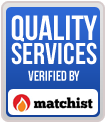Trying to grab the attention of an online audience is no easy task. If content is king, then quick content is its queen. Quick and relevant content make a great website that will keep readers engaged and returning.
The ease and speed by which you display this content is especially important as technology continues to advance. Search engines provide the best way to access content and the recipe for marrying them all together can be tricky.
The content needs to be fast loading, clean and easy to read; easy to navigate and especially easy for the search engines to index. Starting with the basics of good grammar, spelling and readable fonts and colors, the following examples will guide you to creating and maintaining content that viewers will want to return.
1) Know your audience. Where they live, how they receive content. Make your content relevant to your audience as information and access that they understand and relate.
2) Become an Expert. Provide information on what you know best. Whether it’s black and white movies, or repairing lawnmowers, bring our own special expertise to the content that you deliver. You’re not just convincing your audience of your thoughts, you’re also showing examples, references and other links to show that you know your stuff.
3) Be Short and Sweet. First impressions mean a lot in online content. Create short and concise headings and subheadings to all of your content. Give it a name and engage the audience as quickly as possible in moving to click, purchase, download or to view more.
4) Keep the animation and motion graphics to the advertising agencies. Use easy to read fonts, colors and small images. For many technology-driven reasons, it is best to keep it simple. If there is creative texture needed for your pages, do so in the navigation or background, not in the content.
Other things to consider:
- Consider all types of devices when designing your delivery of the content. A desktop office computer, as well as, the new 4G tablet should have the same experience when viewing your website.
- Use bolds and bullets if needed but present content in a professional and easy to read way, using headings, subheadings, and four sentence paragraphs.
- Consider search engine Keywords in your content. Keywords allow your audience to find you quickly. If someone types in a Keyword associated with your website, your site will appear in the search. Start with keywords that are very general and then narrow the list down to your specific topic of choice and some of the things that you focus.
- Don’t be intimidated by white space. Some view white space as a threat and to have less as possible. Others say that white space allows content to breath. Mobile audiences these days view white space as a prompter to another website.
- Don’t copy someone else’s words as your own. What you were taught in grammar school, still holds true. If you quote someone else or another writer or content provider, you are obligated in good faith to recognize them.
- Have more then your two eyes, to spell check and edit your content before it is published online. Depending on your audience, you could loss a viewer forever because of a typo. If you can’t afford an editor, email it to a librarian, or English teacher or other writers to edit.
Last but not least. Tell your friends, family, co-workers, pastor, mail man and hairdresser about your website. Your content needs an audience and you have to start to build it. Through social media, online forums, chat rooms, organizations, family members, friends and anyone else that is your target audience ? Spread the word.




